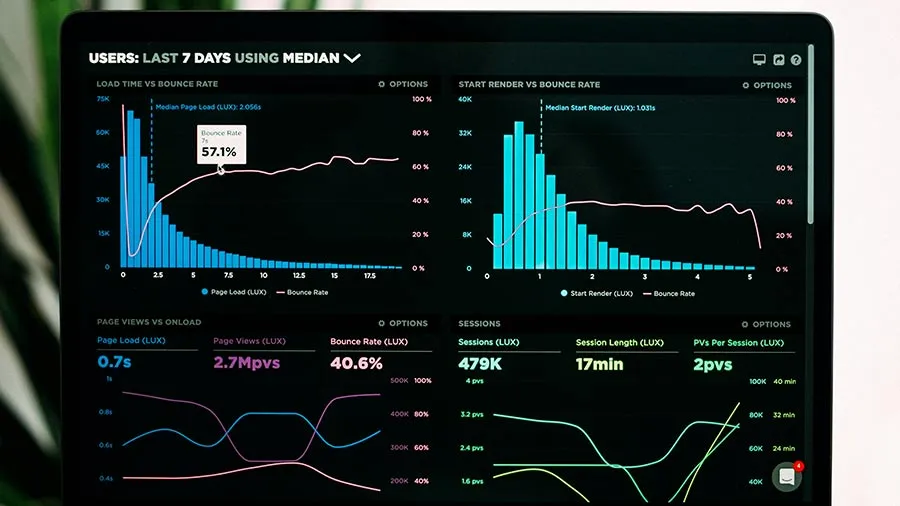In today’s competitive market, understanding your target audience is crucial for effective marketing. One powerful tool for achieving this is the creation of a B2B buyer persona. These personas are detailed, fictional representations of your ideal customers, crafted from market research and real data. By developing comprehensive buyer personas, businesses can uncover key insights into customers’ needs, preferences, and behaviors. This enables them to tailor their sales strategies more precisely and deliver personalized experiences that resonate with their audiences. The best way to create a buyer persona involves leveraging these insights to make informed marketing decisions.
What is a Buyer Persona?
A buyer persona is a semi-fictional profile that represents a segment of your target audience. It combines demographic details, such as age and gender, with deeper insights into customers’ motivations, goals, and challenges. When considering what a buyer persona includes, key elements are demographic information, behavioral data, goals, pain points, and purchasing behaviors. Unlike basic profiles, marketing personas explore what drives customer behavior and purchasing decisions. Think of a B2B customer persona as a detailed character sketch that brings together real intent data and educated guesses about your ideal customers. Building personas is an important exercise in understanding customers on a personal level, allowing businesses to tailor marketing strategies and product offerings to meet specific needs and preferences effectively. By knowing your audience so well, you can craft messages and solutions that truly resonate with them.
How to Create Buyer Personas?
The best way to create a buyer persona starts with comprehensive research and data collection to grasp your customers’ needs and pain points. Begin by collecting insights from internal sources such as your sales team, customer support, and CRM data to identify common themes and challenges. Supplement this with social listening to track online conversations and sentiments, which reveals how customers view your brand and their preferences. Conduct additional market research through surveys, interviews, or focus groups to gain a deeper understanding of your audience’s behaviors and goals.
After gathering this information, segment your customer base into groups based on shared traits like demographics, psychographics, and buying behaviors. Prioritize these segments and develop detailed marketing personas, including demographic details, goals, challenges, values, and purchasing behaviors. This helps you understand their buying journey, the roles within their buying committee, and pain points, enabling you to position your product as a solution to their specific needs. Finally, incorporate these personas and brand personas into your marketing and product development strategies. Tailor your messaging, content, and campaigns to address the unique needs of each business persona. Continuously update and refine your personas with new data to ensure they remain relevant and aligned with your evolving customer base.
Types of Buyer Personas
Buyer personas come in various types, each with distinct characteristics and decision-making processes.
Competitive buyers: Competitive buyers are driven by a quest for superiority and efficiency. They seek products that offer a competitive edge and value innovation, quality, and performance. These individuals are often early adopters of new technology and make decisions based on a product’s effectiveness and results. In a B2B marketing strategy, targeting competitive buyers involves emphasizing your product’s unique value and its ability to outperform alternatives.
Spontaneous buyers: Spontaneous buyers make quick decisions, often influenced by immediate needs or emotional triggers such as excitement or frustration. They are less concerned with details and more focused on instant gratification. Marketing strategies for this B2B persona should emphasize urgency and quick solutions, leveraging emotional appeals and influential endorsements.
Humanistic buyers: Humanistic buyers prioritize personal connections and brand values. They are motivated by relationships and trust, valuing authentic stories and excellent customer service. Incorporating brand personas into your B2B marketing strategy is critical for appealing to humanistic buyers. For this group, building strong relationships and showcasing genuine brand narratives are crucial.
Methodical buyers: Methodical buyers are analytical and detail-oriented, relying on thorough research and logical reasoning. They appreciate comprehensive information and data, making decisions based on clear, factual evidence. Providing detailed FAQs, comparison tools, and data-rich content can effectively engage this B2B persona.
Leverage Buyer Personas for Effective Lead Generation
To drive effective lead generation, developing well-defined buyer personas is essential. Marketing personas are detailed representations of your ideal customers based on research and real data. Here’s how you can leverage them to generate quality leads:
Understand your target market: Before creating B2B customer personas, start with thorough research. Analyze your target market’s industries, roles, and challenges. Collect data from your marketing team, customer feedback, and analytics to identify common patterns and behaviors within your target personas.
Address pain points: A B2B buyer persona should highlight the key pain points your prospects face. By identifying these challenges, you can align your product or service as the solution. This insight helps you craft content and messaging that resonates, increasing engagement.
Create targeted content: Customer personas enable you to tailor content that speaks directly to the needs and challenges of specific segments. Personalized blog posts, ebooks, or case studies provide value and build trust, improving conversion rates as prospects see their unique problems being addressed, especially among well-defined target personas.
Map the buyer’s journey: Understanding where your business personas are in their buying journey allows you to deliver the right content at the right time. For instance, prospects in the awareness stage may prefer educational content, while those in the decision stage might need detailed product comparisons.
Improve lead nurturing: With personas in hand, you can build lead nurturing programs that deliver relevant content based on where prospects are in their journey. Segment your email campaigns to offer solutions that match your personas’ pain points, keeping them engaged and moving through your sales funnel.
How Can Buyer Personas Improve Sales Conversations?
Using buyer personas to improve sales conversations involves tailoring your approach based on the specific needs and preferences of different customer segments, enhancing both engagement and conversion rates. By understanding how to create buyer personas effectively, you can better address each segment’s unique characteristics, ensuring your sales conversations are more relevant and impactful.
Timing and Relevance
Consider how online buyer persona and customer journeys can influence the timing of your sales interactions. For instance, a new customer might be overwhelmed by too many options up front, while a repeat customer may appreciate a more personalized touch. By understanding where each buyer is in their journey—whether they’re exploring options or seeking tailored recommendations—you can deliver messages that resonate more effectively. Ensuring that you present the right product or service at the right moment enhances the likelihood of a successful sale.
Personalized Omnichannel Experiences
Implementing buyer personas means customizing experiences across various channels. For example, your brick-and-mortar clientele might be older and appreciate different messaging compared to the younger demographic engaging with your online platform. Tailoring your communication and promotional strategies to fit each persona’s preferred platform and mode of interaction, as highlighted in B2B buyer persona examples, ensures that each customer segment receives a relevant and engaging experience.
Consistent Brand Messaging
Maintaining a unified brand message across different touchpoints is crucial. Buyer personas help ensure that all marketing team members, whether remote or in-office, present a cohesive story that reflects your brand’s values and mission. Consistency in messaging prevents mixed signals and reinforces trust and credibility with your audience.
Product and Service Enhancement
Finally, use insights from business personas and their decision-making processes to refine your offerings. Understanding what your customers value or dislike allows you to adjust your products or services accordingly. For instance, if a software company identifies a gap in data security features based on its personas, it can enhance its platform by integrating advanced encryption options and compliance tools.
For deeper insights into sales strategies and conversations, check out our podcast featuring Winfried Schultz, who shares valuable perspectives on B2B marketing, lead generation, and customer engagement.
Conclusion
In conclusion, leveraging buyer personas and brand personas is a powerful strategy for effective lead generation. By deeply understanding your audience’s needs, pain points, and decision-making processes, you can craft targeted content, enhance sales conversations, and offer personalized solutions. B2B buyer persona allows you to map the buyer’s journey, optimize your messaging, and deliver timely and relevant interactions across channels. Regularly updating and refining these personas ensures they stay aligned with evolving customer behaviors, ultimately driving better engagement, higher-quality leads, and improved conversion rates. In today’s competitive market, using ideal customer personas is key to staying customer-centric and driving business success.




